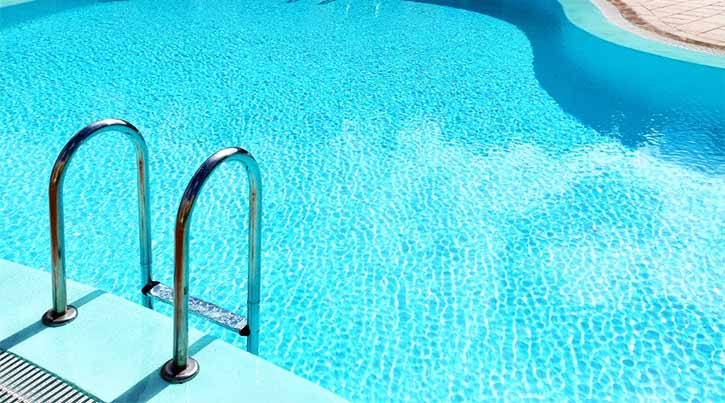Salt Water Pools vs. Chlorine Pools
The type of water you use is another important consideration in creating your perfect pool. Whether you opt for a traditional chlorine pool or salt water pool, picking water may seem menial, but is an important decision. We reviewed the two main types of pools.

Salt Water Pools
Salt water pools are known for feeling softer on your hair and skin and having less harsh chemicals. Salt water pools still have chlorine, but they have one part chlorine per million rather than three parts chlorine per million. The salt constantly generates chlorine, making your pool less likely to have too much chlorine or too little. The initial cost of the salt water system is more expensive, but you can save over time by not having to buy chlorine.
The other benefit to saltwater pools is that the water doesn't sting your eyes or make your skin feel itchy. The salt that is added to saltwater pools is converted into chlorine in the form of hypochlorous acid, which kills off bacteria and germs in the water. Chlorinated pools are treated with chlorine in the form of sodium hypochlorite orcalcium, which forms Chloramines that can irritate the skin and eyes. Another benefit is that saltwater pools cost about half as much to run than chlorinated pools.
Chlorine Pools
These traditional pools are cheaper at original installation than their salt water counterparts. And while their chemical name may bring you back to days of stinging eyes and green hair, modern chemical technology has made chlorine pools less harsh and still a good choice as pool water. You will have to purchase chlorine to maintain your pool, however, and usually it's cheaper to buy in bulk, meaning you'll have to find somewhere to store the chlorine as well.
« Back to the Albany Pool Buyer's Guide